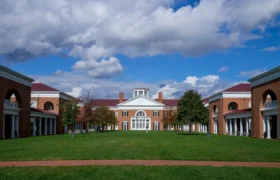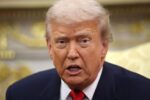The University of Virginia (UVA), one of the nation’s most prestigious public universities, is facing a significant leadership change as its president prepares to resign. According to sources close to the matter, the decision comes as the school finds itself under growing scrutiny from the Trump administration over its Diversity, Equity, and Inclusion (DEI) programs.
While the resignation has not been officially announced, internal discussions and political pressure appear to be converging at a moment of national debate over the role and scope of DEI initiatives in higher education.
UVA and the Role of DEI in Higher Education
The University of Virginia has long been recognized not only for its academic excellence, but also for its commitment to building a diverse and inclusive campus environment. Like many institutions across the United States, UVA adopted a range of DEI initiatives over the past decade — including support programs for underrepresented students, faculty training on inclusive pedagogy, and resources dedicated to creating a more equitable educational experience.
These programs have not been without controversy. Critics — particularly from conservative political circles — argue that DEI efforts may overreach, marginalize alternative viewpoints, or conflict with merit-based practices. The Trump administration has been vocal about reining in what it perceives as ideological imbalances in academia.
A Resignation Under Political Pressure
While the outgoing UVA president has not yet made a public statement, a source familiar with the decision confirmed that the political climate surrounding DEI programs played a central role. Specifically, recent inquiries from federal agencies, public criticism from conservative lawmakers, and a looming threat of funding restrictions have reportedly created a challenging environment for university leadership.
The Trump administration has renewed its campaign against federally funded DEI initiatives, arguing that taxpayer dollars should not be used to support programs that promote “ideological conformity.” Universities receiving federal aid are being closely monitored, and some face potential penalties or loss of support if found to be in violation of emerging regulatory standards.
Implications for UVA and Beyond
The resignation of a university president under political pressure signals more than a change in leadership — it reflects a broader national conflict between academic freedom and government intervention.
For the University of Virginia, the leadership transition may bring uncertainty regarding the future of its DEI infrastructure. Faculty, students, and alumni will be closely watching to see whether core programs are preserved, restructured, or scaled back in response to federal demands.
Other institutions may also feel the ripple effects. As one of the top public universities in the United States, UVA often sets a precedent for policies in higher education. If DEI initiatives are reduced or eliminated at UVA, similar actions may follow elsewhere — especially in states where Republican-led legislatures have taken a strong stance against such programming.
The National Debate Over DEI
DEI programs are designed to foster greater representation and fairness in academic spaces, particularly for groups historically marginalized in higher education. Proponents argue that these efforts are essential for creating a learning environment that reflects the diversity of the society it serves.
Opponents, including members of the Trump administration, argue that DEI programs can become politically motivated, ideologically narrow, or counterproductive when implemented without balance. In recent months, several state governments have passed legislation limiting DEI spending or eliminating DEI offices altogether in public institutions.
The debate continues to shape how universities define their missions — and how they navigate the space between inclusive values and political oversight.
What Comes Next?
The University of Virginia’s Board of Visitors is expected to meet in the coming weeks to discuss leadership succession plans. While interim leadership may be appointed quickly to maintain operational continuity, the longer-term vision for the university will depend on who is chosen to lead — and how that individual interprets the balance between academic priorities and federal scrutiny.
Many in the academic community are calling for transparency and dialogue during this transition, emphasizing the need to protect both institutional integrity and inclusive values.
The planned resignation of the University of Virginia president marks a pivotal moment not only for the university, but also for the national conversation around higher education and the limits of political influence. As DEI programs continue to come under fire, universities must navigate a complex landscape of values, regulations, and expectations.
In the months ahead, the decisions made at UVA will likely serve as a case study for how institutions can — or cannot — resist federal pressure while upholding their core mission to educate, support, and empower all students.










